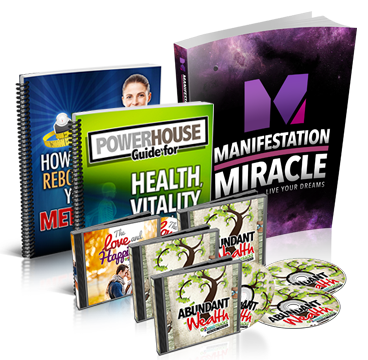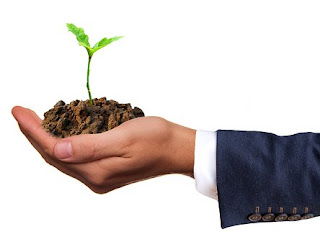By Noreen M Sumpter
People who are angry often lose sight of why they were offended in the first place; all they know is that they're right and the other person is wrong. Being right makes the person angry and he/she goes around making everyone else angry. Learning to understand yourself and forgive provides the tools to understand what it feels like to forgive. Forgiveness is like a much needed refreshing drink on a scorching, hot day. After the first mouthful, you feel refreshed, and any pain you might've been experiencing is washed away. There's no room to continue with one's life in this way. I've definitely experienced forgiveness.
Here's a list of things you and I may have experienced (that others have done to us or that we've done to others), that make us crave forgiveness:
Forgiving doesn't mean forgetting. Forgiving doesn't minimize or justify the act; it just releases the hurt that the past holds on you.
I heard Oprah say many years ago on her show, that "forgiveness is a gift that you give yourself." If you can't forgive, you're the one that's left with the pain. You must learn to let go of the ill feelings of anger, hurt, and upset. Forgiveness unties your heart and frees you up. Forgiveness lives in the past. Every time you remember what happened, you relive the experience and it brings it back to the present moment. Forgiveness allows you the opportunity of staying in the present; providing you with empathy and compassion from the perceived wrongdoing.
We get hurt, and it's usually by the people we love and are closest to because they're the ones we've let into our lives. Family and friends can be the ones that abuse, betray, reject, and insult us and they're the ones that we never expect to treat us this way. People we let into our hearts and homes do things we may might not like and we suffer instead of speaking out and honoring ourselves. Most of the time we're mad at ourselves because we didn't honor ourselves or speak up. We feel bad, and like I said before, it becomes like a disease because it's a negative experience which affects our feelings.
If negative incidents are not handled immediately, they begin to grow bigger and fester, fill with the pollution of resentment, killing off any positive feelings, and becoming a blight in your existence. The resentment quickly immerses into bitterness and continues to kill off any positive feelings surrounding the person that's wronged you. You can't face the person and you find yourself having difficulty with this relationship and you begin to have trouble communicating. You become sensitive to the thought of any perceived insult, hurt, or conflict. Your sense of reality can become distorted. The continuance of you holding onto your pain and immersing yourself in suffering becomes a hefty price to pay.
You eventually begin to bring pain into every relationship (new and old) by repeating your story about what happened over and over again, reliving it over and over as if it happened yesterday. You are continually slicing the perceived wound open, never treating or giving it time to heal. It then becomes a part of you, and it does not need to be.
With forgiveness, we never have to identify with hurt or anger, it's just knowing that what happened was not a good experience. Forgiveness is an act that one has to be consistent with. In the Bible, it says that, "we have to forgive 7x70." It's something we have to learn and acknowledge, or we will become victims of the circumstance. We have to learn to forgive our own mistakes, and with that, we learn to forgive ourselves and, in turn, we can forgive others. We have to forgive 7X70 which is 490 times. When you forgive yourself or another person, the feelings of upset, disappointment, and angriness vanish.
When I haven't completed an experience and forgiven it, I've either felt butterflies in the pit of my stomach or I've felt uncomfortable because the past keeps rearing its ugly head and the anger, like acid, runs through my stomach and wants to come up. My mind goes into fight or flight mode which is how I know I haven't forgiven the person. Truthfully, I'm suffering because I'm allowing the past to take hold of me. That's when I realize I have to forgive again. The moment I gave up the anger and forgave, I was free. Free to honor myself and the person I was angry with. Some of us are good at holding onto the pain, holding on to malice from now until eternity. Anger is a feeling of being violated; our boundaries have been broken. We have to do the inner work, or we will be stuck with repressed feelings, live in denial, and we won't feel good. When we forgive, our hearts expand and our feelings become whole, complete, and perfect. In turn, we feel honest and our giving of forgiveness becomes organic. There is space where there was none. You have to put yourself and your boundaries back together. Forgiveness helps you do that. It hurts and is a drain on your being to live in a closed-off space.
It's good to feel the anger, be with it, not repress it, and allow it to take you over. Anger has information for us if we are willing to be with it and listen. We have to feel our anger and feel out the information it has for us. Anger is usually telling you that you have not taken care of yourself, and it's time to take care of the wrong you feel. Put the integrity back in.
When you're angry, ask yourself these questions to allow you to begin to get to a point of forgiveness:
Love yourself.
Until next time!
People who are angry often lose sight of why they were offended in the first place; all they know is that they're right and the other person is wrong. Being right makes the person angry and he/she goes around making everyone else angry. Learning to understand yourself and forgive provides the tools to understand what it feels like to forgive. Forgiveness is like a much needed refreshing drink on a scorching, hot day. After the first mouthful, you feel refreshed, and any pain you might've been experiencing is washed away. There's no room to continue with one's life in this way. I've definitely experienced forgiveness.
Here's a list of things you and I may have experienced (that others have done to us or that we've done to others), that make us crave forgiveness:
- Affairs
- Criticism
- Denigration
- Being gossipped about
- Pain
- Abuse
- Mistreatment
- Cruelty
- Violence
- Exploitation
- Misuse
- Neglect
- Disrespect
- Dishonor
- Fear
Forgiving doesn't mean forgetting. Forgiving doesn't minimize or justify the act; it just releases the hurt that the past holds on you.
I heard Oprah say many years ago on her show, that "forgiveness is a gift that you give yourself." If you can't forgive, you're the one that's left with the pain. You must learn to let go of the ill feelings of anger, hurt, and upset. Forgiveness unties your heart and frees you up. Forgiveness lives in the past. Every time you remember what happened, you relive the experience and it brings it back to the present moment. Forgiveness allows you the opportunity of staying in the present; providing you with empathy and compassion from the perceived wrongdoing.
We get hurt, and it's usually by the people we love and are closest to because they're the ones we've let into our lives. Family and friends can be the ones that abuse, betray, reject, and insult us and they're the ones that we never expect to treat us this way. People we let into our hearts and homes do things we may might not like and we suffer instead of speaking out and honoring ourselves. Most of the time we're mad at ourselves because we didn't honor ourselves or speak up. We feel bad, and like I said before, it becomes like a disease because it's a negative experience which affects our feelings.
If negative incidents are not handled immediately, they begin to grow bigger and fester, fill with the pollution of resentment, killing off any positive feelings, and becoming a blight in your existence. The resentment quickly immerses into bitterness and continues to kill off any positive feelings surrounding the person that's wronged you. You can't face the person and you find yourself having difficulty with this relationship and you begin to have trouble communicating. You become sensitive to the thought of any perceived insult, hurt, or conflict. Your sense of reality can become distorted. The continuance of you holding onto your pain and immersing yourself in suffering becomes a hefty price to pay.
You eventually begin to bring pain into every relationship (new and old) by repeating your story about what happened over and over again, reliving it over and over as if it happened yesterday. You are continually slicing the perceived wound open, never treating or giving it time to heal. It then becomes a part of you, and it does not need to be.
With forgiveness, we never have to identify with hurt or anger, it's just knowing that what happened was not a good experience. Forgiveness is an act that one has to be consistent with. In the Bible, it says that, "we have to forgive 7x70." It's something we have to learn and acknowledge, or we will become victims of the circumstance. We have to learn to forgive our own mistakes, and with that, we learn to forgive ourselves and, in turn, we can forgive others. We have to forgive 7X70 which is 490 times. When you forgive yourself or another person, the feelings of upset, disappointment, and angriness vanish.
When I haven't completed an experience and forgiven it, I've either felt butterflies in the pit of my stomach or I've felt uncomfortable because the past keeps rearing its ugly head and the anger, like acid, runs through my stomach and wants to come up. My mind goes into fight or flight mode which is how I know I haven't forgiven the person. Truthfully, I'm suffering because I'm allowing the past to take hold of me. That's when I realize I have to forgive again. The moment I gave up the anger and forgave, I was free. Free to honor myself and the person I was angry with. Some of us are good at holding onto the pain, holding on to malice from now until eternity. Anger is a feeling of being violated; our boundaries have been broken. We have to do the inner work, or we will be stuck with repressed feelings, live in denial, and we won't feel good. When we forgive, our hearts expand and our feelings become whole, complete, and perfect. In turn, we feel honest and our giving of forgiveness becomes organic. There is space where there was none. You have to put yourself and your boundaries back together. Forgiveness helps you do that. It hurts and is a drain on your being to live in a closed-off space.
It's good to feel the anger, be with it, not repress it, and allow it to take you over. Anger has information for us if we are willing to be with it and listen. We have to feel our anger and feel out the information it has for us. Anger is usually telling you that you have not taken care of yourself, and it's time to take care of the wrong you feel. Put the integrity back in.
When you're angry, ask yourself these questions to allow you to begin to get to a point of forgiveness:
- Who are you angry at?
- Why are you angry at him/her/them? |
- What boundaries do you feel he/she/they have violated?
- How long have you been angry with him/her/them?
- When will you give it up?
- What actions do you have to take to give it up?
- What promises will you make to yourself to begin the forgiveness process?
Love yourself.
Until next time!
Are you angry and in need of forgiveness of yourself and others but don't know how to begin the process? You can always reach out to me by visiting my website, www.noreensumptercoach.com and sign up for my FREE 15-minute Hello Call. What are you waiting for? Begin the forgiving and healing process NOW!
source
source











Comments
Post a Comment